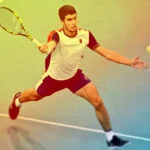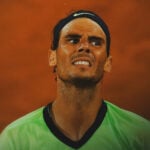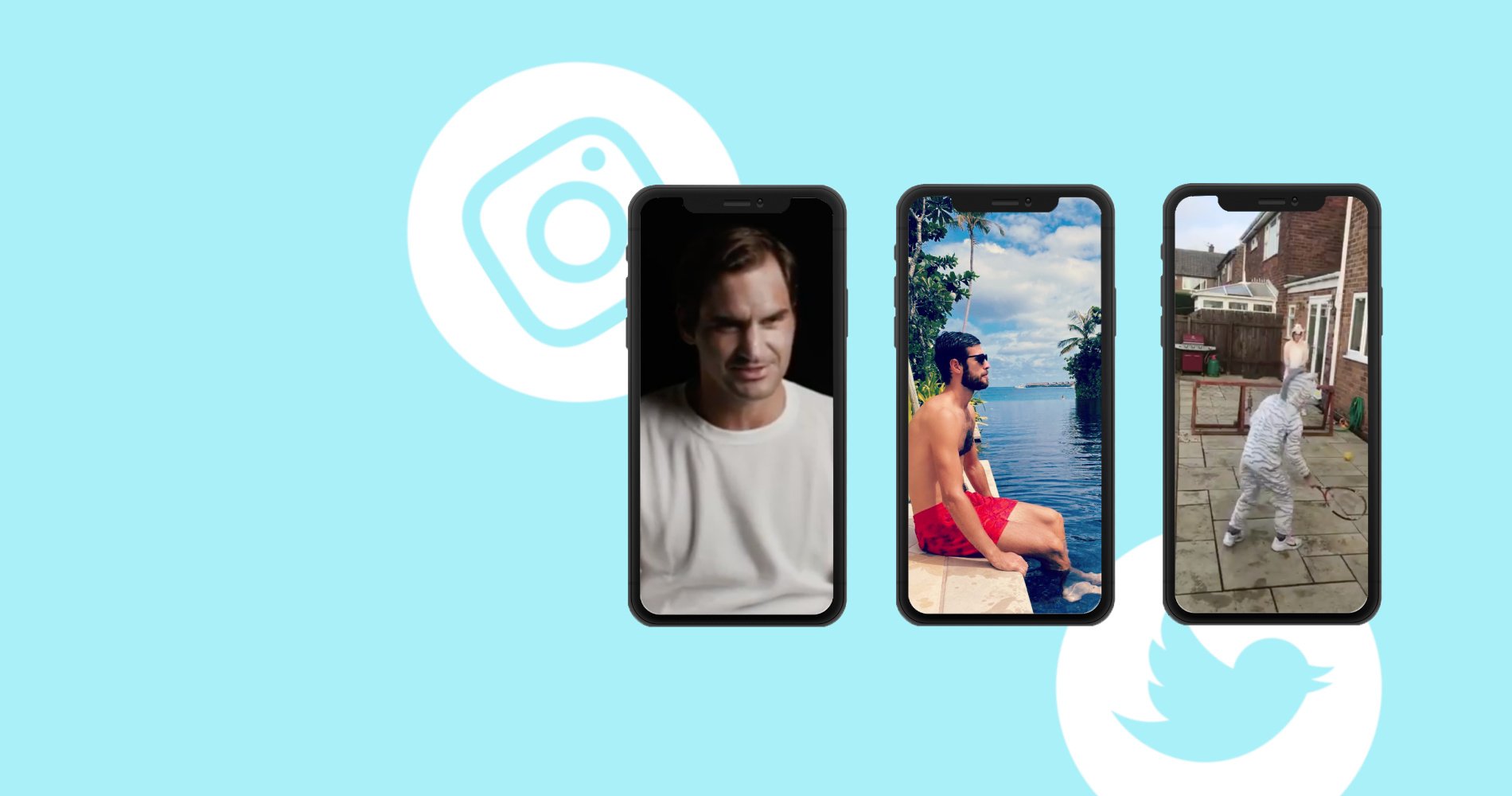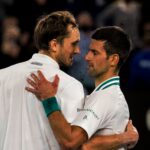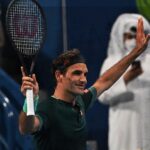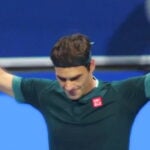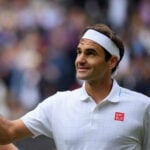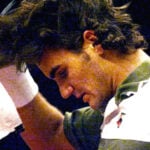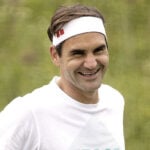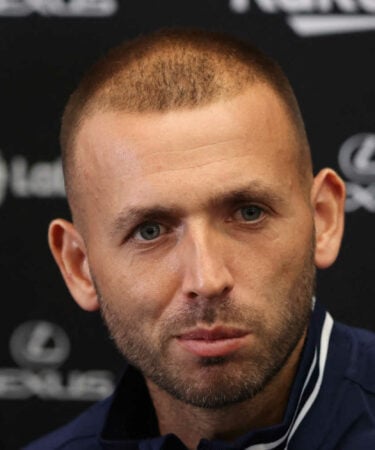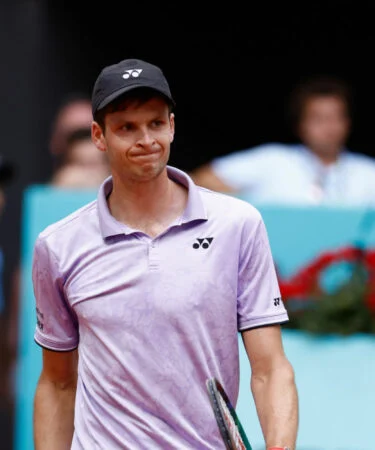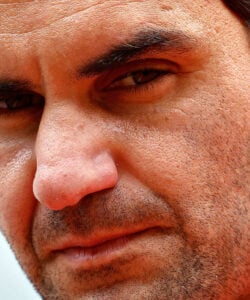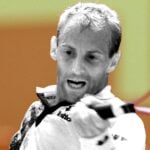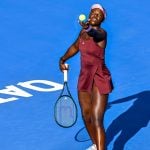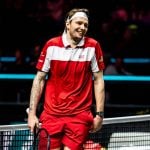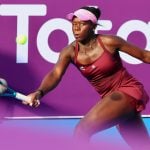Roger Federer in 2021: A comeback, but not how he would have liked it
Roger Federer returned to the Tour in 2021 but his year ended early and another knee surgery means it’s not clear if he will play again
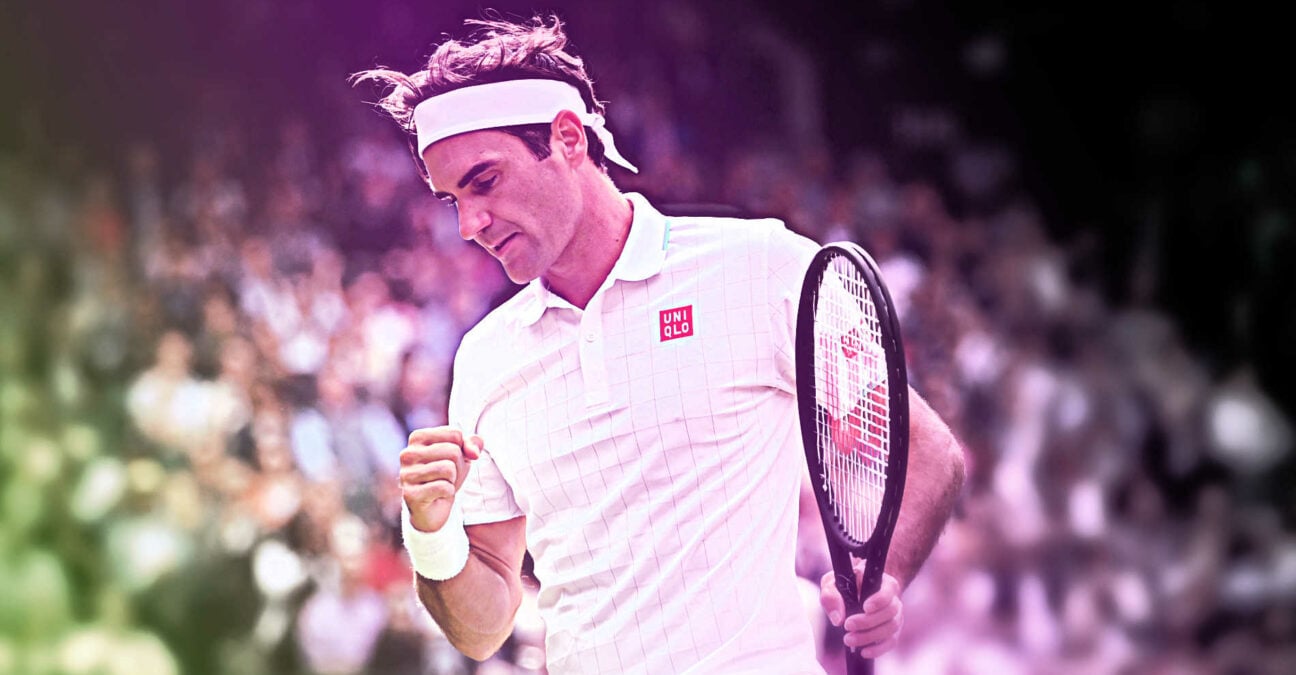 © AI / Reuters / Panoramic
© AI / Reuters / Panoramic
The good news for Roger Federer in 2021 was that, after two knee surgeries in 2020, he was able to return to the court. The bad news was that he managed just five events and though he still made it to the quarter-finals at Wimbledon, he did not play again after that and underwent another right knee operation that will keep him off the Tour for many months.
The joy at seeing Federer back on Tour was quickly countered by the realisation that his comeback was far from easy and he knew from an early stage that his body was not quite right. There were still some good moments, of course, especially at the French Open and Wimbledon, but in the year in which he turned 40, he is once again rehabilitating from injury and his future in the sport is far from certain.
- Federer’s ranking at the end of 2020: 5
- Federer’s ranking at the end of 2021: 16
- Federer’s 2021 win-loss record: 9-4
- Federer’s Titles: 0
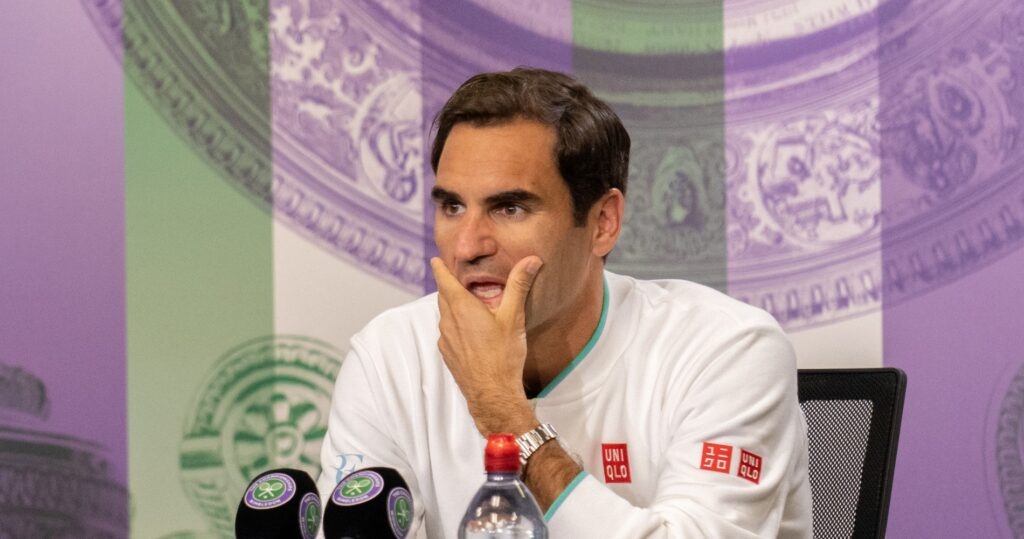
Best Federer’s performance: Sweeping Richard Gasquet aside at Wimbledon
It seems a little strange that it should have come at a time when he probably knew that he needed more knee surgery but Federer’s win over Richard Gasquet in the second round at Wimbledon was one of, if not the best performance the 20-times Grand Slam champion produced in 2021.
After winning the first set on the tiebreak, Federer began to open up, relax and cut loose and it seemed like the old Federer was back (7-6, 6-1, 6-4).
“Felt good physically,” he said. “Much more relaxed in many ways, as I was able to play a really good breaker, then have a great sort of 32 minutes to whatever the end was, almost an hour, hour and 15.
I think it is really crucial for guys to be able to stretch the lead. What I was able to do today gives you a lot of confidence. You can start to play so much more freely. It was a nice match for me, good atmosphere for me, good weather. It was definitely, like you said, one of the highlights of the year so far.”
Best Federer’s Grand Slam result: Reaching Wimbledon quarter-finals
Having reached the fourth round at the French Open only to pull out as a precaution, Federer switched to grass but was then beaten in the second round at Halle, leaving his confidence brittle as he arrived at the All England Club, where he has won the title eight times.
He looked shaky in the first round and got lucky when Adrian Mannarino slipped and had to quit at the start of the fifth set, impressed in his second-round win against Richard Gasquet and fought well against Cameron Norrie in round three. In the fourth round, he beat Lorenzo Sonego, perhaps benefitting when the match went indoors to take his place in the quarter-finals against Poland’s Hubert Hurkacz.
His straight-sets loss to Hurkacz was hugely disappointing though, with the benefit of hindsight, there were still moments when he had his chances, especially in a second set which he led 4-1. Had he not stumbled at the net at 2-3 in the second-set tiebreak, he might have levelled the match but in the third set, he was thoroughly outplayed, failing to win a game as he won a 6-3, 7-6 (4), 6-0.
“I’m actually very happy I made it as far as I did here and I actually was able to play Wimbledon at the level that I did after everything I went through,” Federer said at the time.
Best moment of the season for Federer : Making his comeback in Doha
After missing the Australian Open, Roger Federer made his long-awaited comeback in Doha, in a first-round match against Britain’s Dan Evans. And the 20-time Grand Slam champion was impressive, coping with an in-form Evans, then-ranked No 28, well and coming through 7-6, 3-6, 7-5 to advance to the second round.
It was arguably better than Federer had expected, his serve clicking nicely and his forehand still as damaging as ever as he found a way to win against an opponent who was playing some of his best tennis. The pair had practised together in the run-up to Federer’s comeback and perhaps the knowledge of his game also helped the Swiss get the job done, but it was a hugely encouraging performance and optimism, at the time, was high.
“It feels good to be back,” Federer said. “It would have been good to be standing here, regardless of if I’d lost. It was a great match. I was tired at the end and I thought I would just go out swinging. I was actually really pleased with my performance. It’s been a long and tough road for me. But it’s been worth it because I played a great match today.”
“Worst” moment of the season for Federer: The third set against Hurkacz
In a Grand Slam career that began in 1999, Roger Federer had only been bagelled twice; once in the very first match he played at slam level, in the first round at Roland-Garros by Pat Rafter in 1999 and then, famously, by Rafael Nadal in the final at Roland-Garros in 2008.
On grass, he’d only lost a set 6-1 twice and yet, having let slip a 4-1 lead in the second set, he found himself two sets down to Poland’s Hubert Hurkacz, his spirits dropping.
“They deserve better than the image of my last grass season.”
Roger Federer
Seeing Federer, who has owned Centre Court so many times in his career, visibly dispirited was hard to see and it seemed as if he was happy to get off the court as fast as possible. Hurkacz, playing beautifully, duly obliged as he won the third set 6-0 to end Federer’s hopes at Wimbledon and, not that he knew it at the time, his season.
Though he made the best of it at the time, months later, Federer admitted that losing his last set 6-0 at Wimbledon was not the way he wanted to remember the place he had dominated so often, in itself a motivation to return in 2022.
“It would be easy for me to say, ‘it’s OK, I’ve given a lot and received a lot, let’s stop here’,” he said. “But me investing everything to come back again is also my way of saying thank you to my fans. They deserve better than the image of my last grass season.”
Federer by Federer’s own words : “I want to come back”
Federer knows he was not at his best in 2021; he knew it when he was playing, and losing to Felix Auger-Aliassime in the second round in Halle.
“I already felt (in Halle) that my Wimbledon would not be what I had hoped for,” he said. “Even though I didn’t know the nature of my injury yet, I knew I would be limited. In retrospect, I realised that I almost didn’t win a point at Wimbledon when I had to defend myself. But yes, that Wimbledon confirmed to me that despite my limitation, I could still play at a high level. And considering how far I got, I just have to try again.”
That last line is crucial. Federer wants to try again, if his body allows him.
“If I do my rehabilitation intensively, there is a chance that I will get back to a high level,” he said. “If I do strength training, go on the bike, swim, do balance exercises, work on my upper body, then I believe in it. Will I return to the Tour for a smaller round or for something bigger? Nobody knows, neither the doctors nor me. But I’m fighting for it. To be clear, my world will not collapse if I never play another Grand Slam final.
“But it is my ultimate dream to return once again. And in fact, I still believe in it. I believe in these kinds of miracles. I have already experienced them. Sports history sometimes writes such miracles. I am realistic: it would be a great miracle. But there are miracles in sport.”
“I’m realistic. It would be a great miracle. But there are miracles in sport.”
Roger Federer
Tennis Majors’ assessment: It’s all about the knee
If Roger Federer is able to get back on court in 2022, then that will be a huge achievement. It will mean that rehab has gone well and that he believes he is capable of doing himself justice on the court.
What that will mean remains to be seen. At 40, with much of the last two years spent recovering from surgery, it’s asking an awful lot for him to be fit enough to have a big run, especially at a Grand Slam event.
And yet this is Federer, one of the all-time greats, who has already produced a number of miraculous things in his career, as he did in 2017, when he returned from surgery to win the Australian Open, adding an eighth Wimbledon and then another Australian Open crown the following year.
The will appears to be there, which is half the battle. The chances of Federer playing regularly on Tour, at 40/41 with what he’s been through physically of late, are slim. But where there’s life, there’s hope.
“When you get right down to it, it doesn’t make much difference whether I return in 2022 or not until 2023, at 40 or 41,” he said. “It doesn’t matter. The question is rather: will I manage to torture myself again day after day for my comeback? My heart says yes today. So I’m taking things step by step. I have experienced similar challenges many times in my career. Sometimes without the public being aware of it. And even though I know that the end is near, I want to try to play some big matches again. It won’t be easy, but I will try.”
